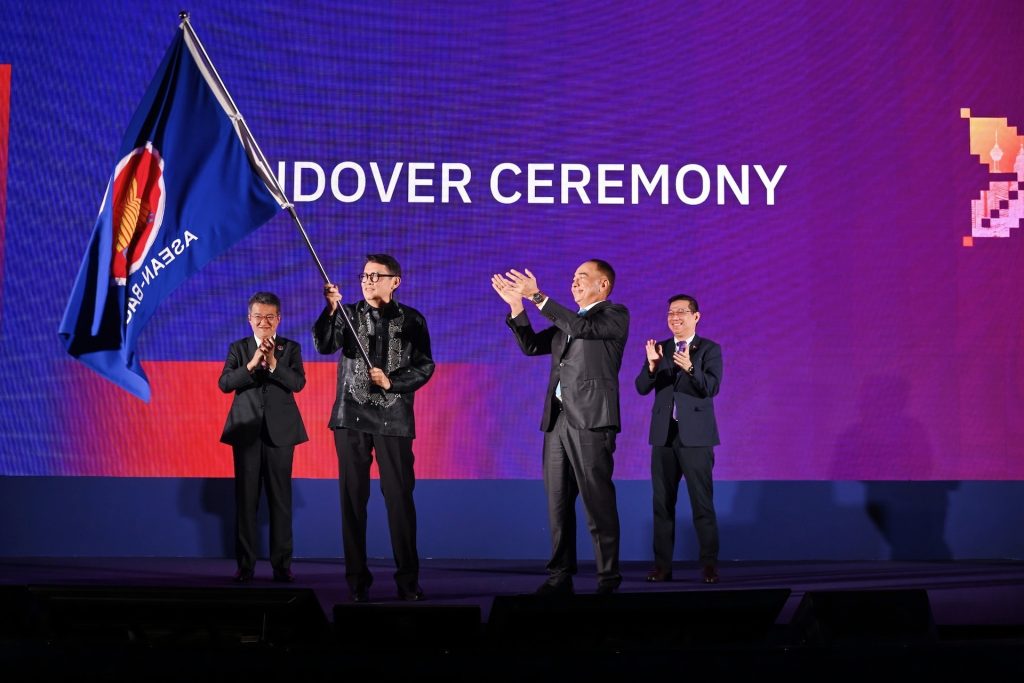
The Private Sector’s Power to Drive Inclusive Prosperity in the Region
October 20, 2025
Navigating Toward a Prosperous Future Together
November 3, 2025
Rebuilding Trust Through Inclusive Growth
Traveling to Kuala Lumpur last week, I was filled with excitement for the handover of the chairship of ASEAN from Malaysia to the Philippines. I was there specifically for the private sector-led ASEAN Business Advisory Council (ASEAN-BAC) events and Related Summits that were to happen over the weekend. There’s the ASEAN Business & Investment Summit and the ASEAN Business Awards, and the inaugural ASEAN Inclusive Growth Summit. There has, so far, been plenty of exchanging of ideas, and I am glad to hear how some resonate with my own views of the role of ASEAN and the private sector in bringing about inclusive, sustainable growth.
His Royal Highness Sultan Nazrin Shah, the Sultan of Perak and Deputy King of Malaysia, had some very wise words as he welcomed the attendees to the gathering. I think his thoughts are worth sharing because they encapsulate what I have been emphasizing all these 20 years of working with small entrepreneurs: we have to help those at the bottom of the pyramid and that, for growth to be genuinely inclusive, it must be equitable and sustainable. Without a focus on inclusion, progress risks becoming fragile, as rising inequality can erode trust in institutions.
I find that inclusion and trust have now become even more relevant in our case in the Philippines, especially in the wake of the uncovering of systemic corruption in infrastructure projects. This moment for our country is an opportunity for significant change.
We must learn from their experience. Good governance is the foundation of inclusive growth. When growth is inclusive, trust grows, and with it, stability and the confidence to invest in the country’s future. Before I left for Malaysia last week, I said as much before the Philippine Chamber of Commerce and Industry’s 51st Philippine Business Conference & Expo: that issues of systemic corruption in the Philippines threaten to loom large over our upcoming chairship of the ASEAN, and that it may affect investor confidence in the country.
Another insight is on inclusive growth. We in the private sector (meaning, big business) have been blessed that we have managed to grow our enterprises and enjoy comfortable lives; however, we will not realize the full benefits of wealth unless it is shared. Across Southeast Asia, there are incredibly wealthy countries, and then there are poor countries. I believe ASEAN is an instrument in helping the rest of the region so that all its citizens become prosperous, or at least experience fully the benefits of progress. A robust economy cannot thrive in isolation from the welfare of its citizens: it is the same for a country as it is for an entire region. The moment you help the poorest and scale them up, the economy will grow. I call it the Circle of Prosperity.
It is essential to acknowledge that millions within ASEAN remain marginalized, and as it was pointed out, it is not by choice but due to poverty, insufficient infrastructure and a lack of resources. This is becoming increasingly true with the rapid pace of digital technology. As it has accelerated progress, digitalization also has the potential to widen and deepen economic divides if access and digital literacy do not evolve alongside each other. Here is where we must always be guided by the goal of inclusion.
In some places, for example, digital technology is progressing at a fast pace, while in the rural hinterlands, there is barely any infrastructure to speak of. The risk of exclusion threatens to widen the gap between different segments of society, undermining opportunities and weakening social bonds.
We have a responsibility to ensure that economic growth translates into meaningful social progress, benefiting not just those at the helm of industry and business but entire communities. Digital technology has the power to connect even the smallest enterprises to global markets. I think it has the power to do even greater things if it reaches the farthest communities and serves the poorest of our citizens.
Furthermore, there are parallels in trust in institutions and trust in technology. In tandem with building more sophisticated digital infrastructure is putting safeguards that promote trust and transparency: same as it does with our government institutions. A functioning society must fully trust the system that holds it up; otherwise, it cannot be truly inclusive nor will it thrive. Trust is as crucial to growth as any tangible asset. Digital technology can only be transformative when underpinned by trust.
I never fail to share with my peers at the ASEAN-BAC – all of them successful and wealthy leaders of enterprise in their respective countries – about our work in Go Negosyo here in the Philippines. I tell them how much impact a simple mentoring session can have with a struggling entrepreneur; how a small amount like a $100 cash prize can mean a new lease on life for a dying business. How an afternoon of giving encouraging words and referrals can spark hope.
There needs to be a re-examination of our definitions of success, and ask ourselves how we arrive at decisions. We need to ask ourselves not just about financial returns but also about the social impact of our actions. We must be guided not just by the pursuit of profit but also by the goal of promoting equitable growth.
Originally Published in Philippine Star


2/F RFM Corporate Center, Pioneer cor. Sheridan Sts. Mandaluyong City, Metro Manila, Philippines

